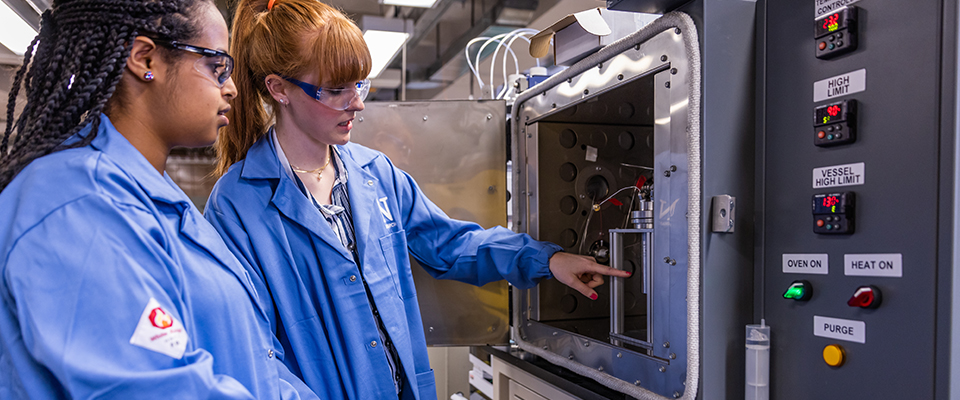

The Department of Chemical and Biological Engineering at Northwestern University is pioneering transformational discoveries in synthetic biology, biotechnology, medicine, complex systems, energy, sustainability, and materials and using them to tackle the biggest problems facing the world today, including renewable energy, biomanufacturing, clean water, plastics recycling, and human health.
Highly interdisciplinary, the department conducts research across traditional boundaries while creating an inclusive environment that is committed to excellence in education and mentorship. The department also promotes entrepreneurship among its faculty and students, leading to innovative startups and national awards. The department’s collaborative culture prepares the next generation of chemical and biological engineers to work within a multidisciplinary team to develop solutions for society’s key challenges.
The master’s degree program is specifically designed for those interested in entering or advancing their careers in related industries. Students without a bachelor's degree in chemical engineering or a related field may need to complete some additional prerequisite coursework. In some cases, prerequisites can be earned after admission to the program.

“The McCormick School of Engineering provided me with an exceptional platform to engage in cutting-edge research and collaborative learning. The program fostered an environment where I could grow academically while also contributing to the graduate community through my involvement in the Graduate Leadership Council.”

“A hallmark of Northwestern Engineering is the collaborations that take place across disciplinary boundaries, within engineering and even beyond.”
The basics at-a-glance
Required courses give students broad exposure to advanced topics in core chemical engineering concepts, while technical electives introduce students to the diversity of topics in current chemical and biological engineering practice, including biotechnology, nanoengineering, and sustainability.
Earn your master’s or combined BS/MS degrees with the following options:
Minimum of 10 courses
Those interested in industry careers may wish to enter the coursework MS track.
Time to completion: 9-15 months
Seven courses + three research units + thesis
Those interested in being a researcher in academic, industry, or government laboratories should choose the MS with thesis track. This option is intended to be a terminal master’s. Those interested in a PhD should apply to that program.
Time to completion: 21 months
Students in the program often complement their degree with a minor in synthetic biology or a minor in engineering management.